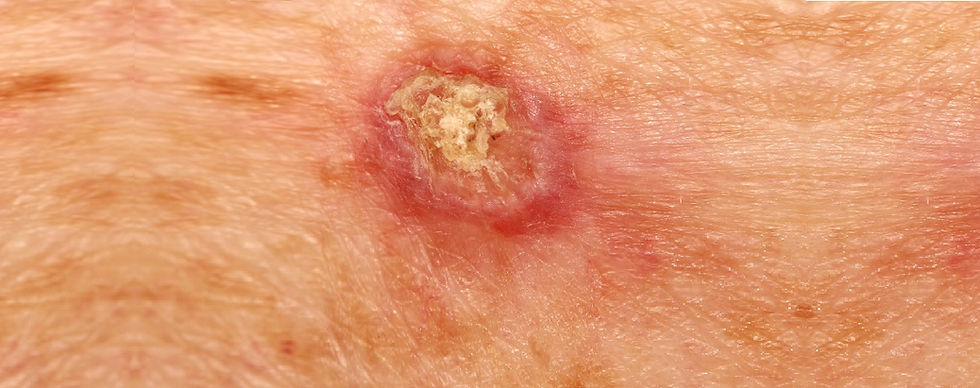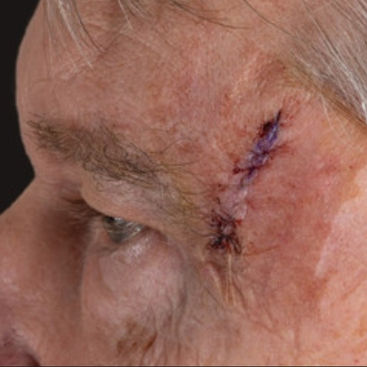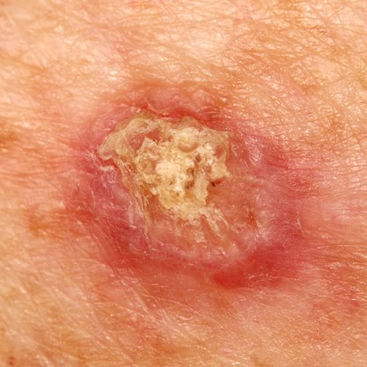
Dr. Chuck Lortie FRCPC, FAAD, ACMS

SQUAMOUS CELL CARCINOMA
Squamous Cell Carcinoma (SCC) is the second most common skin cancer representing about 20% of all cases. It tends to occur on chronically sun exposed skin in older fair skinned individuals.
In addition to ultraviolet radiation from the sun, other contributors to the development of SCC include:
Ionizing RadiationChemicals: eg. Arsenic & Tar,
Human Papilloma Virus, (HPV)
Chronic Immunosuppression
Scars
Distinctly different than basal cell carcinomas, SCCs tend to be scaly rather than pearly in appearance.

Another form of SCC is the "In Situ" type. This variety tends to spread more superficially remaining in the top layer of the skin. It often appears as a flat, scaly, slowly expanding lesion. Left untreated, however, Squamous Cell Carcinoma In Situ can progress to become more deeply invasive.

Keratoacanthoma (KA) is another form of Squamous Cell Carcinoma. This type of skin cancer has a rapid initial growth phase. The lesions are often tender and patients tend to seek medical attention earlier. Though these lesions can quickly enlarge, they tend not to have deeply invasive roots. This means that in the early stages they can often be removed more easily with surgery. Some keratoacanthomas may regress over time, but this is not guaranteed.

Like basal cell carcinomas, SCCs commonly present as non-healing lesions on the skin. One difference, however, is that squamous cell carcinoma can spread to other areas of the body. Some risk factors for this spread include:
Large Tumors >2cms in size
Tumors that are more Deeply Invasive (>2-4 mms)
Tumors located on high risk sites, such as the Ears and Mouth
Tumors with more Poorly Differentiated cell types
Since squamous cell carcinoma can be a challenge to treat, referral to a specialist with specific knowledge of this disease is essential. This is particularly true when these cancers occur on anatomically more precious regions of the body such as the scalp, face, neck, hands, feet and genitals. Mohs Surgery is considered the gold standard for the treatment of non-melanoma skin cancers located in such sensitive regions.
At Park Dermatology, our staff includes an ACMS certified, ACGMS fellowship trained Mohs Surgeon with the expertise to direct your skin cancer care.
STATISTICS: SQUAMOUS CELL CARCINOMA

20%
of Skin Cancers

1 in 20
Lifetime Incidence

95%*
5 Year Survival
*Individual Survival Dependent on Stage at Diagnosis.







